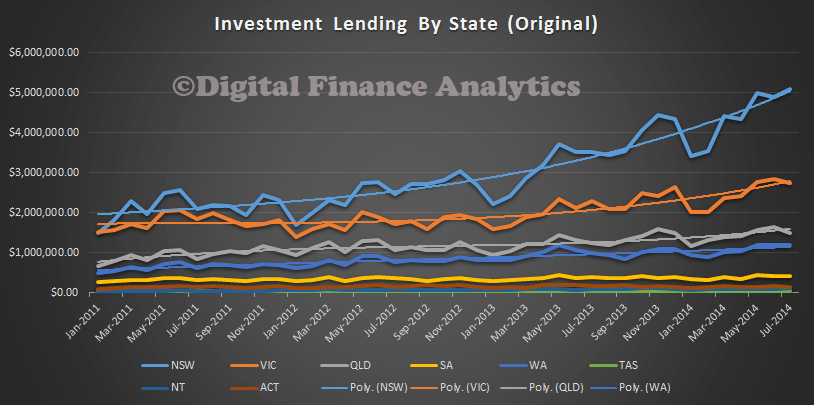In a speech in Melbourne, the RBA governor, Glenn Stevens said macroprudential tools could prove useful in helping to control the exuberant housing market. That said, he was still skeptical about their effectiveness.
He made the point that whilst monetary policy can’t solve every problem (i.e. interest rates alone) and there may be a need to take other steps if “at the margins they are helpful,”he didn’t consider macroprudential tools a simple solution to the problem, referred to in yesterdays Stability Review of strong investment lending. A reminder of the latest data, which we discussed recently.
 He reiterated his concerns about the risks of investment loans, and highlighted the potential risks later, echoing yesterdays report.
He reiterated his concerns about the risks of investment loans, and highlighted the potential risks later, echoing yesterdays report.
No mention of macroprudential as a fad this time, which I guess is a step in the right direction. The IMF and OECD seem more convinced of the effectiveness of macroprudential. DFA’s view is we need them, and soon, alongside changes to negative gearing, and increased capital buffers.
It is interesting to note that U.S. regulators have announced that large banks will be required to hold more liquid capital to ensure they do not get into difficulty in a downturn. According to Reuters the eight biggest U.S. banks must boost capital levels by a total of $68 billion under these new rules. These rules are stricter than those under Basel III, and the banks have complained they will be put at a competitive disadvantage. They will need to hold tier one assets of 5%.

3 thoughts on “Macroprudential Tools could prove useful – RBA”